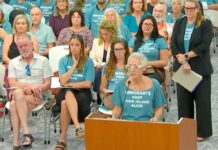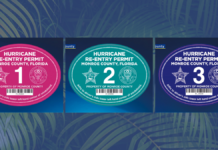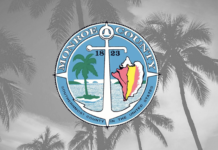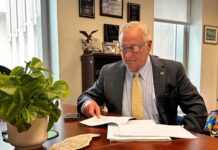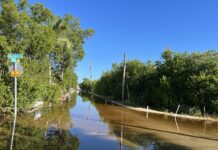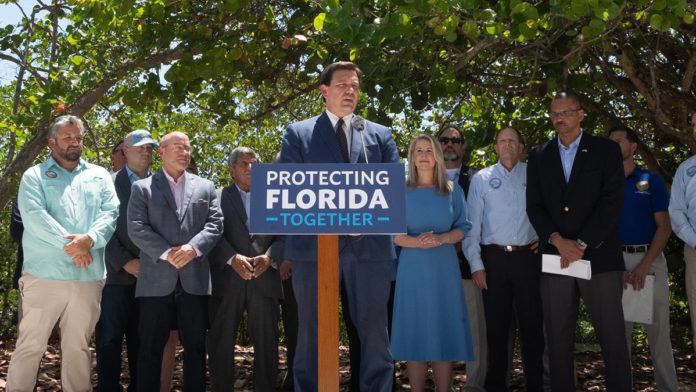
In recent weeks, Gov. Ron DeSantis signed a number of bills approved by the House and Senate. Among the signings causing a stir are a bill revoking the Walt Disney Company’s special district status in the state, known as the Reedy Creek Improvement District, and the Parental Rights in Education bill, which bans classroom instruction on sexual oritentaton or gender identity in kindergarten through third grade.
Among the bills recently signed by the governor that keep some money in Floridians’ wallets is House Bill 7071. It establishes several sales tax holidays for a variety of items commonly purchased by Floridians. A fuel tax holiday during October will lower gas prices by 25 cents per gallon, according to state officials. Between May 14 and Aug. 14, there will be no sales tax on the purchase of children’s books.
Those preparing for the upcoming hurricane season can purchase supplies such as tarps, batteries, flashlights and fire extinguishers during a 14-day disaster preparedness sales tax holiday from May 28 through June 10. There’s also a one-year Energy Star Appliances sales tax holiday from July 1, 2022, through June 30, 2023, for washing machines, clothes dryers, water heaters, and refrigerators.
“In Florida, we are going to support our residents and help them afford the goods that they need. Florida has been fiscally responsible, so we are in a good position to provide meaningful relief for families, right now,” DeSantis said.
House Bill 7053 provides a pool of funding for municipalities that submit flooding and sea level rise resilience projects to the Department of Environmental Protection. A Statewide Flooding and Sea Level Resilience Plan will dole out $100 million a year for pre-construction activities, such as design, surveys, permitting or site development. DEP will rank projects submitted by cities and counties and provide grants for projects that are included in the plan. Legislation also forms the Statewide Office of Resiliency within the governor’s office and the position of chief resilience officer, which is currently held by Wesley Brooks.
On May 3, DeSantis announced award grants totaling nearly $20 million for 98 projects around the state as part of the Resilient Florida Program Planning grants. The City of Key West received $905,500 for vulnerability assessment and adaptation plan with peril of flood amendment language, according to DEP. The Village of Islamorada received $178,100 for a village-wide vulnerability assessment and the City of Marathon received $240,000 for a city-wide vulnerability assessment and adaptation plan.
Monroe County received $75,000 for an adaptation plan and $139,350 for a county-wide vulnerability assessment covering only unincorporated areas with peril of flood amendments.
House Bill 741 relates to net metering, which is a billing arrangement designed to compensate customers who own or lease on-site renewable energy generation systems and export electricity generated onsite to an electric utility’s system. It’s most commonly referenced in relation to customer-owned solar panels. Net metering requires customers who own onsite renewable energy generation systems to interconnect with the electric grid.
Under the bill, investor-owned electric utilities’ net metering programs must continue to provide that all electricity used by a customer in excess of generation supplied by the customers’ owned or leased renewable energy system is billed. After the new net metering programs become effective on Jan. 1, 2024, an investor-owned utility may petition the Florida Public Service Commission for approval to impose any combination of fixed charges, including base facilities charges, electric grid access fees, or monthly minimum bills to ensure that the utility recovers the fixed costs of serving customers who own or lease renewable generation and that the general body of ratepayers does not subsidize customer-owned or leased generation.
DeSantis vetoed that bill, saying the legislation in part allows public utilities to impose additional charges to recover lost revenues resulting from residential solar generation systems that exceed the public utility’s estimate. He said the amount that may be recovered under this provision is speculative and would be borne by all customers.
“Given that the United States is experiencing its worst inflation in 40 years and that consumers have seen steep increases in the price of gas and groceries, as well as escalating bills, the state of Florida should not contribute to the financial crunch that our citizens are experiencing,” he said.
Bills passing through the Senate and House go to the governor’s office for consideration. The governor can sign the bill, allow it to become law without his signature or veto the bill. If the governor chooses to veto a bill, the Legislature can override by a two-thirds vote of both chambers.

